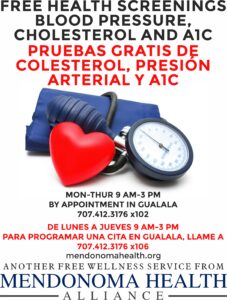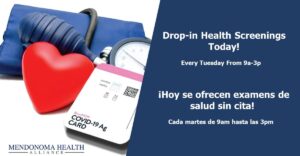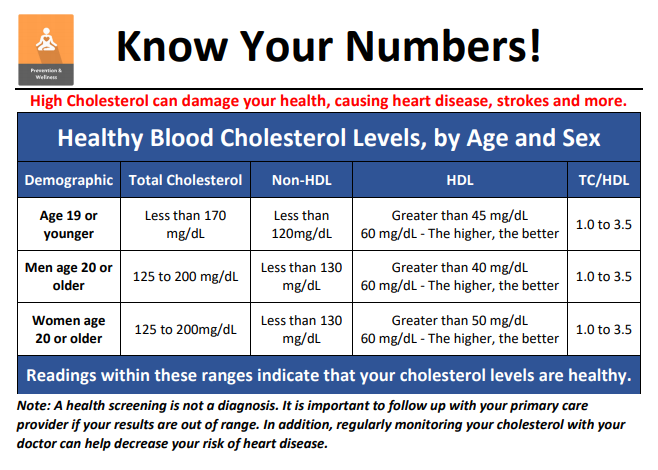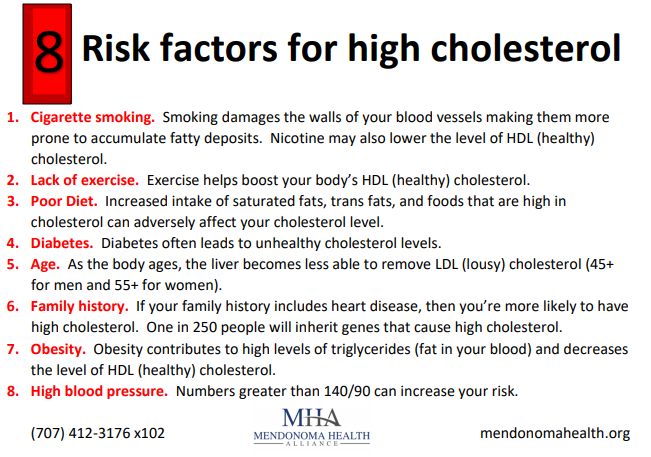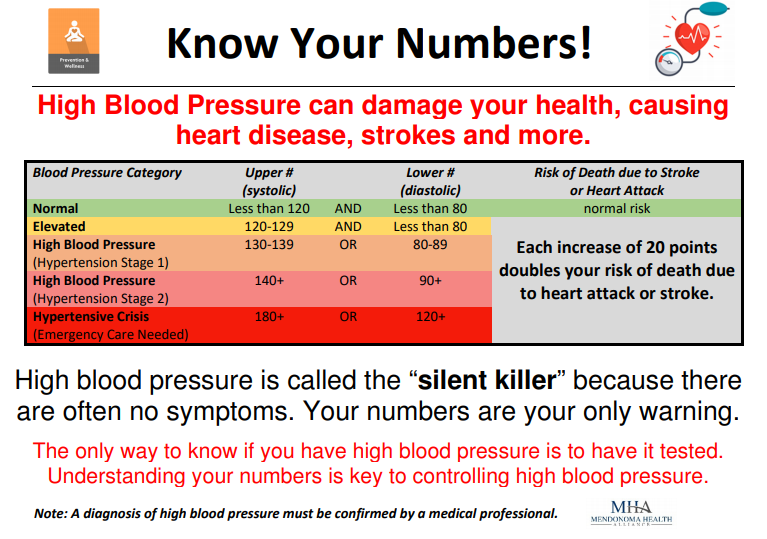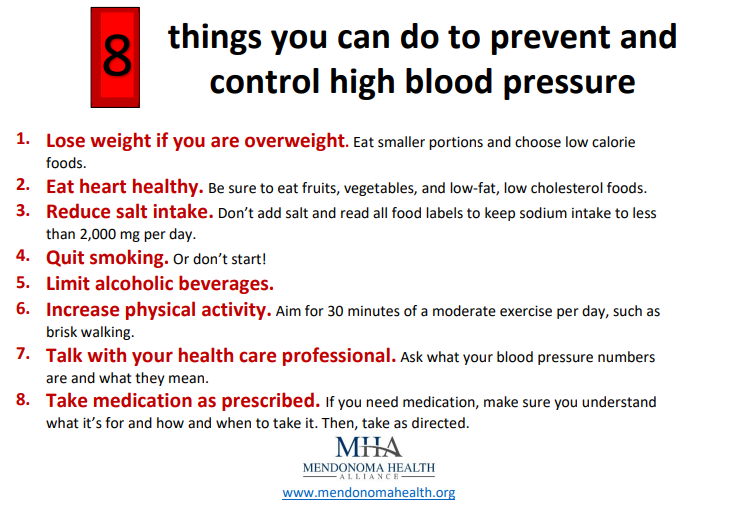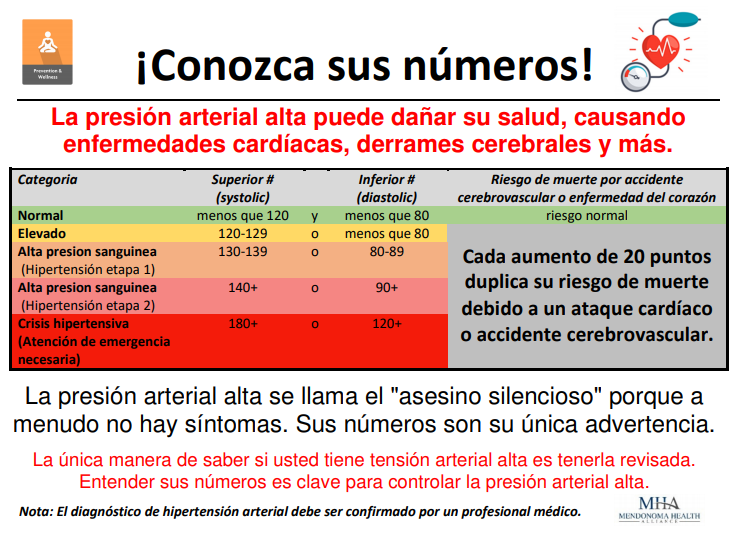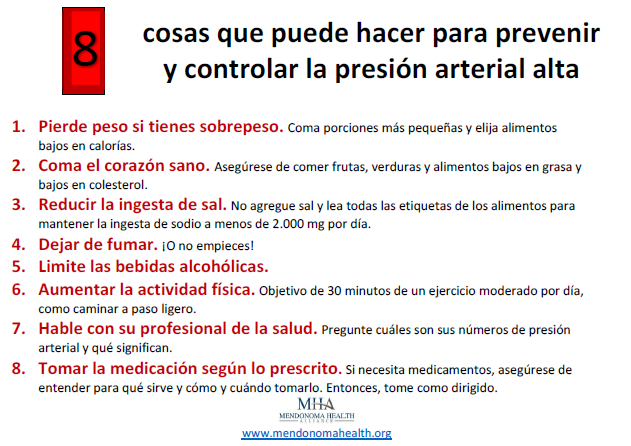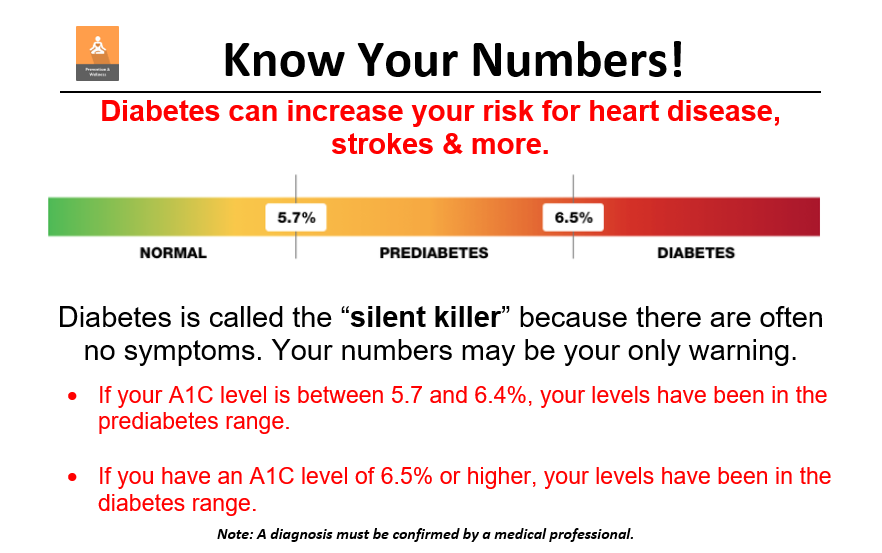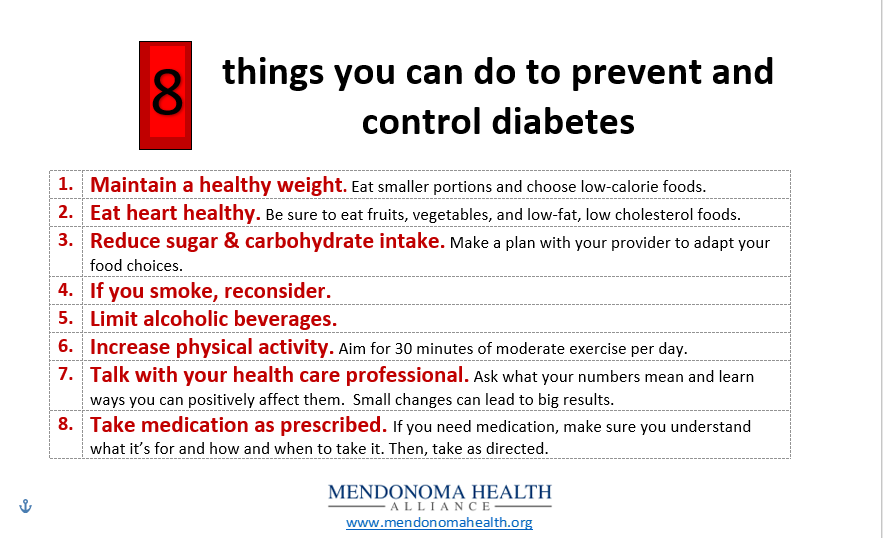Health Screenings
Description
To increase access to health services in the community, Mendonoma Health Alliance offers the following free health screenings: blood pressure, cholesterol, A1C, COVID-19 rapid testing, HIV, and Hepatitis C. Screenings help alert people when they are at-risk for chronic health conditions and if they should contact a medical provider for follow-up care. Our staff can help link individuals who have irregular screening results to a primary medical provider if they don’t already have one. Upon authorization, our staff can also share screening results with a primary care provider if health care is already established.
We provide free health screenings for every community member. We don’t ask for insurance or any other documentation. Free screenings are made possible in part by the Beverly Morby and Eva Dunnebeck Fund, which is provided through the Community Foundation of Mendocino County
Health screenings can be accessed in two ways:
By dropping by one of our scheduled screening locations (no appointment necessary).
By scheduling an appointment at our office in Gualala.
To schedule a screening at our office, call (707) 412-3176 x102 (English) or (707) 412-3176 x106 (Spanish) or send an email to [email protected]. You can also provide your information in the inquiry box to the right of this page. For a list of upcoming community screenings, refer to our News & Events page or our monthly Calendar.
What to Expect
Blood pressure screenings typically take about 5-10 minutes. We ask that individuals wear clothing that allows access to a bare arm for the most accurate results. It’s important to note that some factors, such as drinking coffee or engaging in physical activity prior to a screening, may cause results to be inconsistent. We encourage regular monitoring of your blood pressure because hypertension (high blood pressure) can lead to a heart attack or stroke.
Cholesterol screenings take about 10 minutes. Individuals do not need to fast prior to a cholesterol screening. This type of screening measures your cholesterol levels over the last three months and requires a finger stick to collect a blood sample. Regular monitoring of cholesterol levels is important because it can help prevent coronary heart disease.
An A1C screening takes about 10 minutes and is done using a fingerstick to collect a small blood sample. This screening measures your glucose levels over the last three months. Results will let you know if you are in a healthy range, pre-diabetic, or diabetic. It’s important to monitor your A1C levels because diabetes can cause other major health issues, such as blindness, kidney failure, heart attacks, stroke and lower limb amputation.
The HIV screening provided by Mendonoma Health Alliance test for antibodies in your blood using a small sample that is collected from a fingerstick. Your immune system makes antibodies when you are exposed to bacteria or viruses, like HIV. Knowing your HIV status gives you powerful information to help you take steps to keep you and your partner(s) healthy. HIV testing is essential for slowing the spread of HIV infection. Many people are unaware that they’re infected with HIV, so they may be less likely to take precautions to help prevent spreading the virus to others. An HIV antibody test can determine if you have HIV from 3–12 weeks after infection. An HIV screening appointment will take about 45-60 minutes.
Hepatitis C screening involves testing a small blood sample that is collected from a fingerstick to see whether it contains antibodies (disease-fighting proteins) that react specifically to the hepatitis C virus. Screening can detect the infection before it has caused serious damage to a person’s liver and provides people with the opportunity to seek treatment. Screening is most beneficial for people at high risk for being infected with hepatitis C, such as those who have ever injected drugs. People who received a blood transfusion before 1992 also are at increased risk.
Upon completion of any screening, our Community Health Workers will provide a brief overview of health education relating to the type of screening you received, along with a review of your results.
Inquiry Form
Hypertension, Cholesterol, & Prediabetes Education
This website and Mendonoma Health Alliance’s programs are partially supported by the California Department of Public Health as part of a grant award through the Substance and Addiction Prevention Branch totaling $1,281,000 over a 3-year period that began on March 1, 2024. Other funding sources that support this website include funding from Santa Rosa Memorial Hospital’s Community Benefit Program and generous donations from the community. The contents are those of the author(s) and do not necessarily represent the official views of, nor an endorsement by, CA Department of Public Health.

